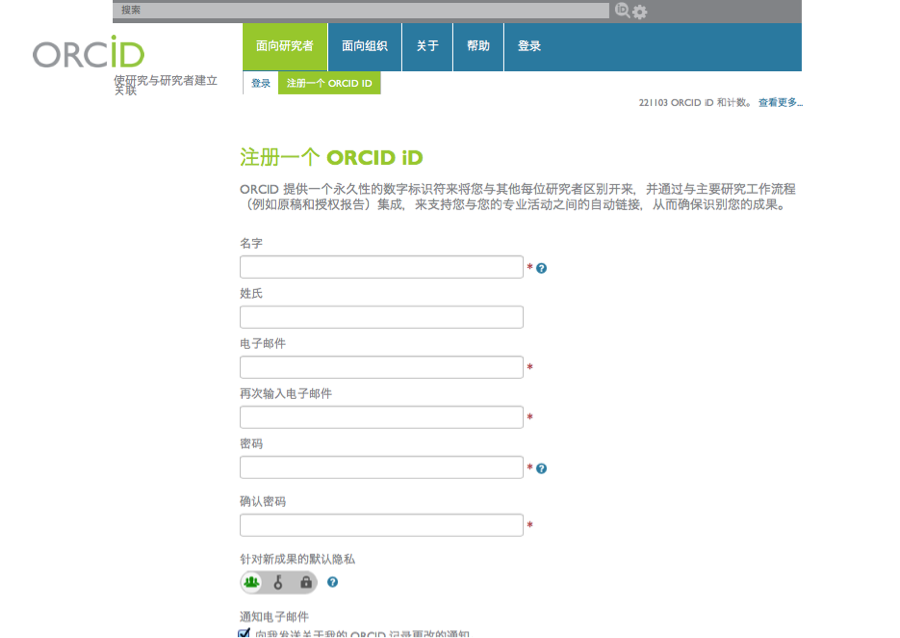ORCID has broad international usage and membership. Since our launch in October, 2012, over 220,000 researchers and scholars have registered for an identifier. Our Registry has been visited by users in over 200 countries and territories, with over 10,000 users each from over 20 countries. ORCID member organizations are also global in scope.
ORCID has a fundamental commitment to supporting the international research and scholarly community. To support the growth and usage of ORCID, we are making our home page, Registry, and selected orcid.org pages available in Spanish, French, Traditional Chinese, Simplified Chinese, and English. Users may register for an identifier and manage their account in a language-specific interface. Users claiming an ORCID record created by their employer will receive language-specific communications from ORCID. And ORCID mission and goals are now available in multiple languages. We will continue to offer technical support in English, but can augment this with our Ambassadors. Multi-language user interface support builds upon capabilities ORCID has offered since launch for adding content, including alternate names, in multiple character sets. Natalie Clairoux, Biomedical librarian at the Université de Montréal, explained her support of ORCID internationalization efforts: “To be successful and truly international, any system needs to be usable in more than just one language (and this is NOT always understood). Work started by ORCID to provide an interface in other languages such as French is truly appreciated and will encourage its adoption by scholars from all over the globe, including French Canada. Bravo!”

David Palmer, Associate University Librarian and Digital Strategist and the University of Hong Kong—and also an active ORCID Ambassador–explained the importance of multiple language support: “Unique personal names in written Chinese character text become hopelessly jumbled when transcribed into Roman homographs. ORCID provides a new paradigm, enabling multi-script attributes and an interplay between manual and machine, and individual and institutional update routines. At last, Eastern authors, investigators, and inventors, and those that manage their research can search on and retrieve disambiguated identities.”
